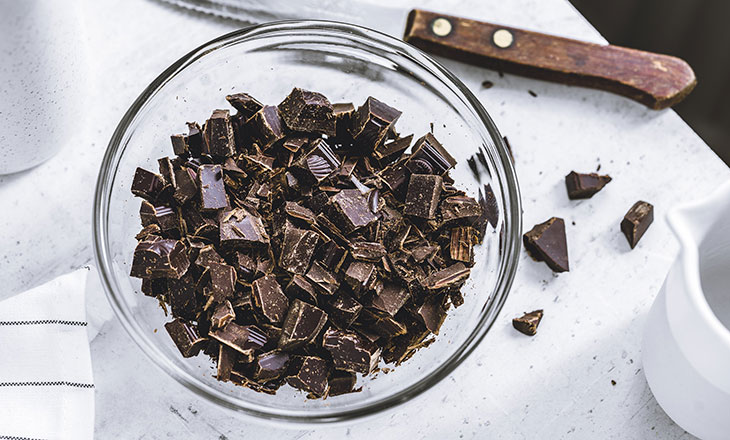
Nothing celebrates Valentine’s Day like a lovely heart-shaped box of chocolates. In recent years, chocolates – specifically dark chocolates - have been praised as a healthy treat.
Most dark chocolate is rich in plant chemicals called flavanols. Flavanols are antioxidants linked to a lower risk of heart disease.
Read more: 5 ways to keep your heart healthy and happy
In theory, dark chocolate will contain higher flavanol content (greater health benefit). Milk chocolate contains much less, and white chocolate contains none. Dark chocolate is also a good source of soluble fiber, vitamins, and minerals (like iron, zinc, magnesium, etc.).
In addition, dark chocolate options are lower in sugar, making it less likely you’ll eat one right after another. To get the most “health benefit,” select dark chocolate (70-80% cocoa) with the least amount of added sugar.
“I think a key to long-term success with a healthy diet is to indulge on occasion – whether it’s a small dessert or a great piece of dark chocolate,” says registered dietitian Haley Dockrey.
Read more: Chocolate fact vs. fiction – Test your knowledge
Read more: Health benefits of dark chocolate
Dark chocolate’s dark side
There’s a flip side to the dark chocolate story. Consumer Reports featured a story in December 2022 that detailed reports of heavy metals found in several popular brands of dark chocolate.
Our bodies naturally contain metals such as iron, copper, and zinc. While some metals provide essential benefits, too much of any of these metals can cause issues.
Heavy metals, such as cadmium and lead, were found in some dark chocolates. These metals can interrupt metabolic functions and the way our organs perform. Some chocolate bars in the study had levels of cadmium and lead that were considered harmful to our health.
If you eat chocolate on a daily basis, check out Consumer Reports’ list to see which ones you should choose. As noted in the article, many chocolate makers already produce chocolates with low levels of these metals.
“Again, our best bet is to enjoy our desserts in moderation,” Dockrey says. “In this scenario, stay informed by either going to a trusted source online, or meet with a registered dietitian who can help you navigate the many choices.”
This blog was written by UC Davis Health registered dietitian Cathy Deimeke.




